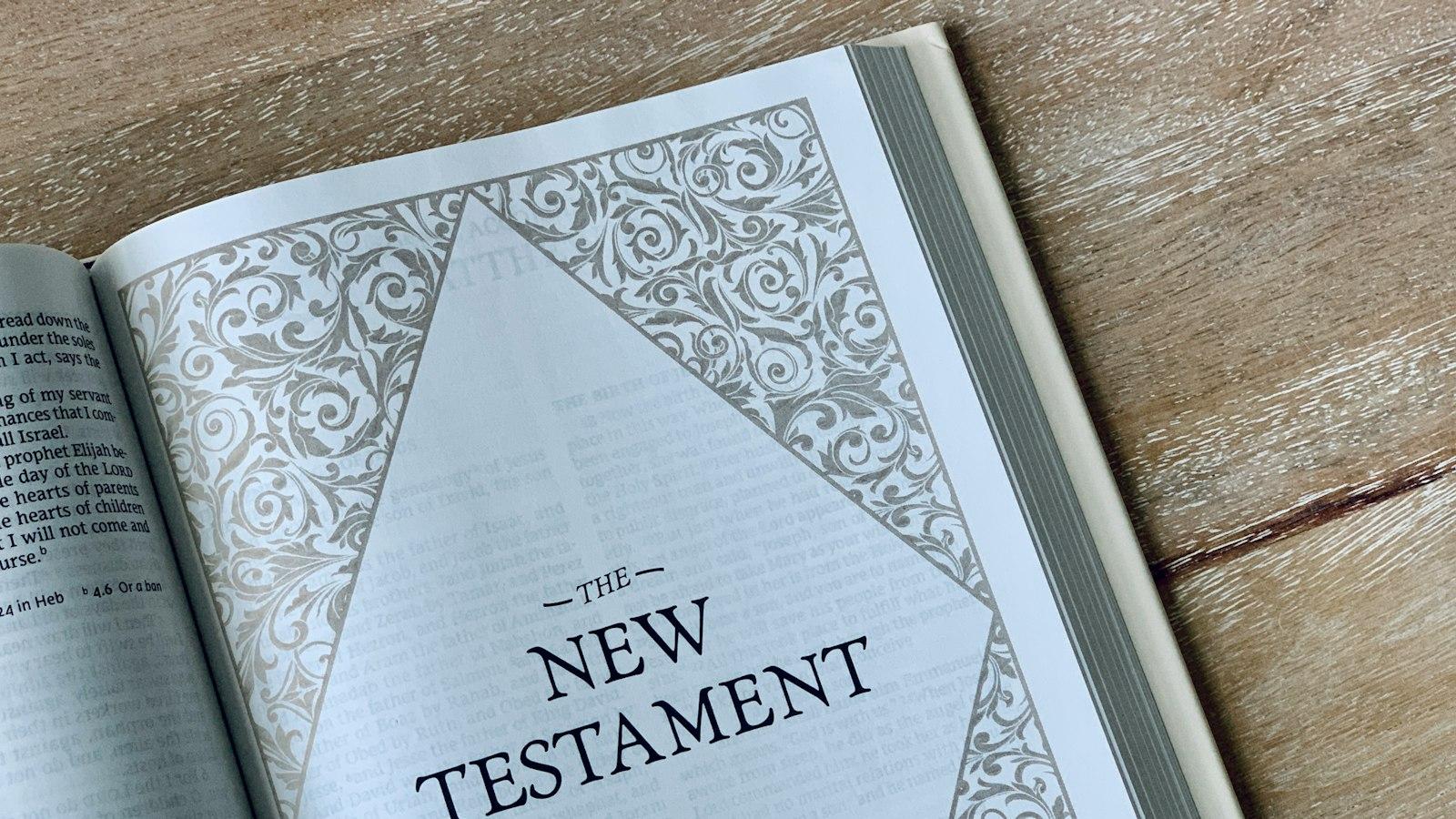Hey there! Have you ever wondered about the biblical meaning of 3? Well, you’re in luck because today we’re diving into this fascinating topic. In the Bible, numbers have significant symbolic value, and the number 3 is no exception. So, let’s unpack the biblical meaning of 3 and explore its significance in various contexts. Excited? Let’s get started!
1. Importance of the Number Three in the Bible
In the Bible, the number three holds significant symbolism, representing divine perfection and completion. From stories to prophecies, this numeral is woven into the tapestry of scripture, emphasizing the importance of the triune nature of God. Here are some fascinating aspects of the biblical meaning of three:
The Trinity
One of the most fundamental interpretations of the number three in the Bible is its reference to the Holy Trinity – God the Father, God the Son (Jesus Christ), and God the Holy Spirit. Just as a three-stranded cord is not easily broken, the Trinity reflects the inseparable and harmonious relationship between these divine entities. This sacred union manifests in various accounts, affirming the central role of three in the Christian faith.
Divine Fulfillment
The number three also appears as a symbol of fulfillment, completion, and perfection in biblical prophecies. Jesus, for instance, rose from the dead on the third day, signifying the completion of God’s salvation plan. Additionally, three gifts were presented to baby Jesus by the wise men, representing the divine fulfillment of the Messianic prophecy. These examples highlight the significance of the number three as a testament to divine accomplishment.
Resurrection and Restoration
The biblical meaning of three extends to themes of resurrection and restoration. Jesus foretold His resurrection on the third day, reaffirming the concept of renewal and triumph over death. Similarly, the story of Jonah spending three days and nights in the belly of a great fish symbolizes the eventual restoration and deliverance of God’s people. It is through these narratives that the number three demonstrates the power of God’s intervention in undoing the effects of sin and bringing about new life.
Other Symbolic References
Three often appears in other significant events and elements within the Bible. For example, the Menorah, a seven-branched candelabrum used in the Jewish temple, has three branches on each side with one central branch, representing illumination and divine presence. The Apostle Peter denied Jesus three times before the rooster crowed, underscoring the significance of repentance and forgiveness. These diverse symbols reinforce the multifaceted nature of three and its representation throughout biblical narratives.

2. Symbolic Meaning and Significance of Three in Biblical Texts
Within biblical texts, the number three holds immense symbolic meaning, representing a variety of significant concepts and events. Its recurrence throughout the Scriptures emphasizes its special significance and invites deeper interpretations:
The Holy Trinity
One of the most prominent associations with the number three in Christianity is the Holy Trinity: God the Father, God the Son, and God the Holy Spirit. This doctrine underpins Christian theology and highlights the unity and diversity within the Godhead. The concept of the Holy Trinity is a foundational belief that sets Christianity apart from other religions.
Divine Perfection and Resurrection
The number three often symbolizes divine perfection and completeness, as exemplified by Jesus’ resurrection on the third day. This miraculous event not only signifies the completion of God’s redemptive plan but also illustrates the power of transformation and renewal. The three days also parallel Jonah’s time in the belly of the whale, foreshadowing Christ’s resurrection.
Biblical Patterns and Events
The number three frequently appears in biblical patterns and significant events. For instance:
- Jesus’ ministry on Earth lasted for three years, highlighting the completeness of His mission and teachings.
- In the Old Testament, Jonah spent three days and nights in the belly of a great fish, symbolizing repentance and deliverance.
- At the Transfiguration, Jesus was accompanied by three disciples, representing witnesses to His divine glory.
- Three gifts were presented to Jesus by the wise men: gold, frankincense, and myrrh—symbolizing His kingship, divinity, and sacrificial death.
Influence on Christian Symbolism and Rituals
The significance of the number three has also influenced various Christian symbols and rituals:
- The triple blessing often bestowed during religious rites signifies the Father, Son, and Holy Spirit.
- Many traditional prayers, such as the Gloria Patri, involve the repetition of phrases in groups of three, emphasizing the sacredness of the Trinitarian belief.
- The Sign of the Cross, made by touching the forehead, chest, and shoulders, also aligns with the threefold nature of God.
The symbolic meanings and significance associated with the number three in biblical texts are profound, revealing deep truths about the nature of God, His redemptive plan, and the central teachings of Christianity.

3. Triads and Triple References in the Bible: Unveiling Deeper Connections
The Bible is a rich text filled with symbolism and hidden meanings. One recurring motif that holds significant biblical meaning is the number three. Throughout the scriptures, triads and triple references occur, providing deeper connections and insights into the divine message.
The Trinity: The most prominent example of the biblical significance of three is the concept of the Holy Trinity – the Father, Son, and Holy Spirit. This divine triad represents the three persons of God, each distinct yet inseparable. The Trinity symbolizes unity, completeness, and the harmonious nature of God’s existence.
Divine Completeness: Three is often associated with completeness in the Bible. The number suggests a pattern of starting, progressing, and completing. Just as Christ rose on the third day, overcoming death, the number three reflects the fulfillment and wholeness found in God’s plans and promises.
Significant Triads and Triple References:
- The Three Wise Men: The story of the Magi in the New Testament highlights the significance of three. The three gifts they presented to baby Jesus – gold, frankincense, and myrrh – represent different aspects of his divinity, emphasizing his kingship, priesthood, and ultimate sacrifice.
- Three Temptations of Jesus: In the Gospel accounts, Satan tempted Jesus three times in the wilderness. Through this triad of tests, Jesus demonstrated his steadfastness, rejecting worldly desires to remain faithful to God’s will.
- Three Denials of Peter: During Jesus’ crucifixion, Peter denied knowing him three times, fulfilling Jesus’ earlier prediction. This triple reference serves as a reminder of the consequences of denying one’s faith and the importance of forgiveness and redemption.
These triads and triple references in the Bible offer a fascinating glimpse into the profound symbolism embedded within scripture. They invite us to examine the deeper connections and lessons behind the numbers, unveiling a more comprehensive understanding of God’s divine message.

4. Noteworthy Trinities in the Bible: Exploring Divine Patterns and Patterns of Completeness
Noteworthy Trinities in the Bible
In the Bible, the number 3 holds great significance, representing divine patterns and completeness. Numerous examples of trinities can be found throughout the Scriptures, showcasing the profound meaning and symbolism behind this number. These trinities provide a deeper understanding of God’s nature and His plan for humanity.
1. The Holy Trinity
The most prominent trinity in the Bible is the Holy Trinity, consisting of God the Father, God the Son (Jesus Christ), and God the Holy Spirit. This divine trinity reveals the three persons of God in perfect unity and harmony. It reflects the completeness of God’s character, with each person contributing to the work of salvation and the guidance of believers.
2. The Trinity of Redemption
Another noteworthy trinity is the one found in the process of redemption. This trinity involves the Father’s plan, the Son’s sacrifice on the cross, and the Holy Spirit’s role in convicting and transforming hearts. It signifies the complete work of salvation, where God’s love, grace, and mercy intersect, offering reconciliation and eternal life to mankind.
3. The Trinity of Creation
The Trinity of Creation highlights the three actors involved in the creation account. God the Father spoke the world into existence, Jesus Christ, the Word, was instrumental in its creation, and the Holy Spirit was present, bringing life and order to all things. This trinity showcases God’s wisdom, power, and creative genius, emphasizing the completeness and perfection of His creation.
4. The Trinity of Love
Love is a central theme in the Bible, and the Trinity of Love manifests this concept in a threefold manner. God the Father is the source of love, Jesus Christ demonstrated perfect love through His life and sacrifice, and the Holy Spirit enables believers to love one another as God loves them. This trinity of love portrays the comprehensive nature of love in its origin, expression, and empowerment.
These are just a few examples of the many noteworthy trinities in the Bible. By exploring these divine patterns and patterns of completeness, we gain valuable insights into God’s character and His work in our lives. The number 3 serves as a reminder of the richness and depth of God’s revelation and invites us to seek a deeper understanding of His Word.
So, there you have it! The biblical meaning of 3 is truly fascinating, don’t you think? From the holy trinity to symbolism in numbers, it’s clear that the number 3 holds a significant place in the Bible. Whether you believe in the divine interpretations or simply appreciate the rich symbolism behind it, it’s hard to deny the impact of this numerical figure. We’ve explored how the number 3 represents completeness, unity, and even the balance between the physical and spiritual realms. With such depth and complexity, it’s no wonder that this number continues to captivate theologians and believers alike. So, next time you come across the number 3 in a biblical context, take a moment to reflect on its profound significance. Who knew that a simple digit could hold so much meaning?
